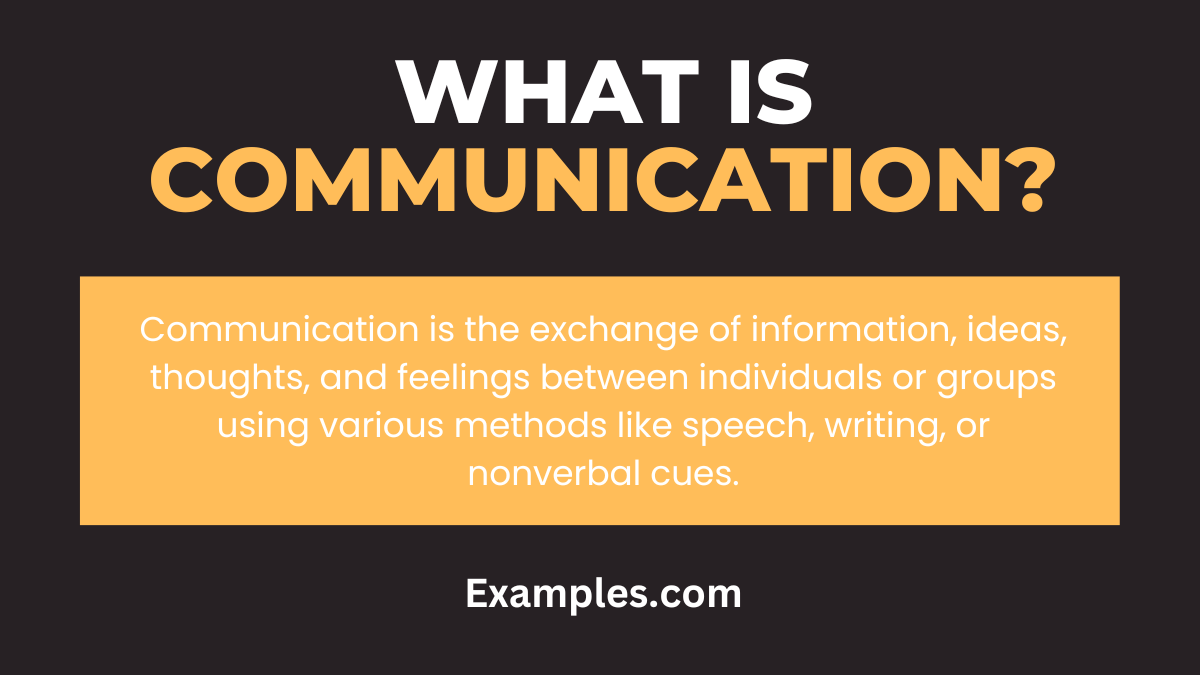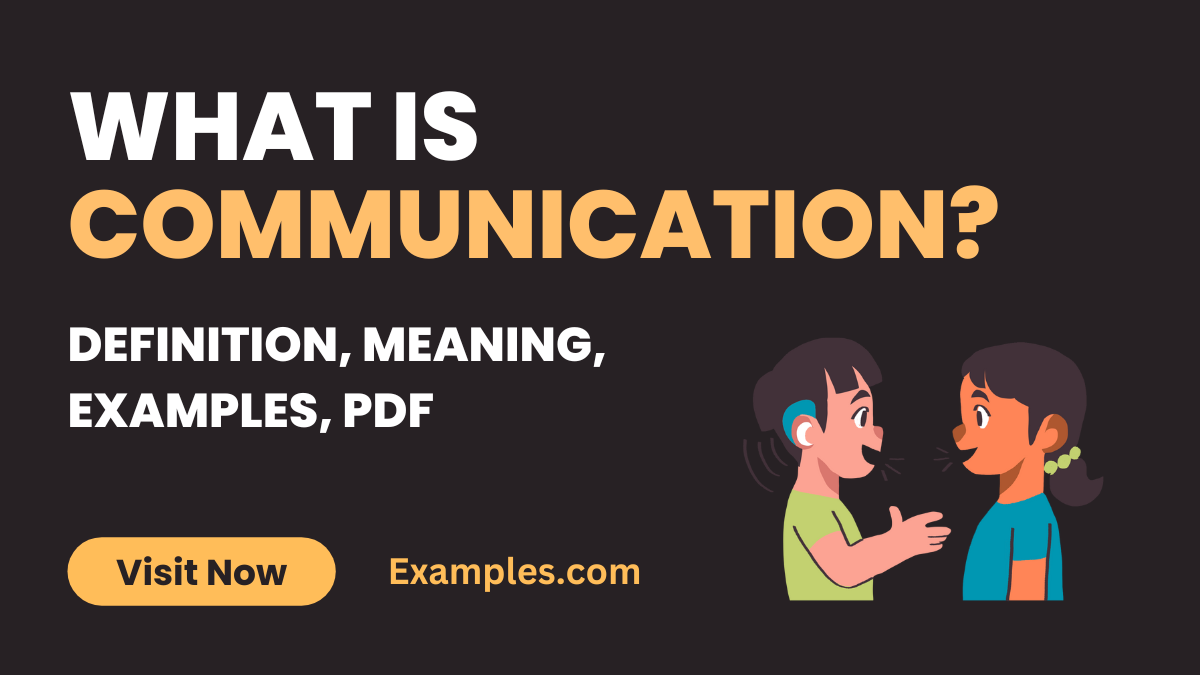What is Communication?
Understanding communication is vital in every aspect of life, especially in the realm of Marketing Communication. This guide provides a comprehensive overview of communication, exploring its definition, meaning, various types, and practical usage. With real-life examples and expert tips, it’s designed to enhance your communication skills, making you more effective in conveying messages and understanding others. Whether for personal relationships or professional interactions, mastering communication is key to success.
What is Communication? – Definition and Meaning

Communication is the process of sharing information, thoughts, and feelings between people through speaking, writing, or body language. It involves not just the words we use, but also how we say them and our non-verbal expressions, like gestures and facial expressions. Effective communication requires both a sender, who conveys the message, and a receiver, who interprets it. It’s a fundamental part of human interaction, helping us connect with others, express our needs, and understand the world around us.
What does it mean to be communicative?
Being communicative means effectively sharing information, feelings, and ideas with others. It involves active listening, clear articulation, and the ability to understand and be understood. A communicative person engages in open and responsive dialogue.
Bad Communication
Bad communication is characterized by misunderstandings, lack of clarity, and ineffective listening. It often leads to confusion, conflicts, and frustration in both personal and professional contexts.
Why is Communication Important?
Communication is vital for understanding, cooperation, and relationship building. It enables the sharing of ideas, feelings, and information, facilitating connections and problem-solving in various aspects of life.
Types of Communication
Communication types include verbal, non-verbal, written, and visual. Each type plays a unique role in conveying messages and emotions in different contexts.
Functions of Communication
Communication functions to inform, persuade, entertain, and build relationships. It’s essential for expressing ideas, influencing others, sharing enjoyment, and establishing connections.
How to Communicate Effectively
Effective communication involves clarity, active listening, empathy, and appropriate non-verbal cues. It requires understanding the audience and tailoring the message accordingly.
How to Communicate in a Relationship
In a relationship, communication requires honesty, openness, empathy, and active listening. Regularly sharing thoughts and feelings strengthens the bond and resolves conflicts.
How do Animals Communicate?
Animals communicate through sounds, body language, chemical signals, and touch. This communication plays a crucial role in survival, mating, and social interactions.
Communication Theories
Communication theories explore how communication works and its effects. They include the transactional model, social penetration theory, and uncertainty reduction theory, among others.
- Shannon and Weaver’s Model of Communication
- Schramm’s Model of Communication
- Lasswell’s Communication Model
- Berlo’s Sender-Message-Channel-Receiver (SMCR) Model
- Spiral of Silence Theory
- Uses and Gratifications Theory
- Agenda-Setting Theory
- Cultivation Theory
- Elaboration Likelihood Model (ELM)
- Social Learning Theory
- Symbolic Interactionism
- Speech Act Theory
- Expectancy Violations Theory
- Media Richness Theory
- Muted Group Theory
- Two-Step Flow Theory of Communication
- Face Negotiation Theory
- Organizational Information Theory
- Rhetoric Theory
- Narrative Paradigm
How to Communicate better with your Partner?
Communicating better with a partner involves active listening, empathy, patience, and expressing oneself honestly and respectfully. Regularly dedicating time for meaningful conversations is key.
Communication, a multifaceted and essential aspect of human interaction, encompasses various forms and functions. Mastering effective communication enhances relationships, fosters understanding, and improves problem-solving. Whether in personal relationships or broader social contexts, developing strong communication skills is crucial for successful interactions and mutual understanding.



